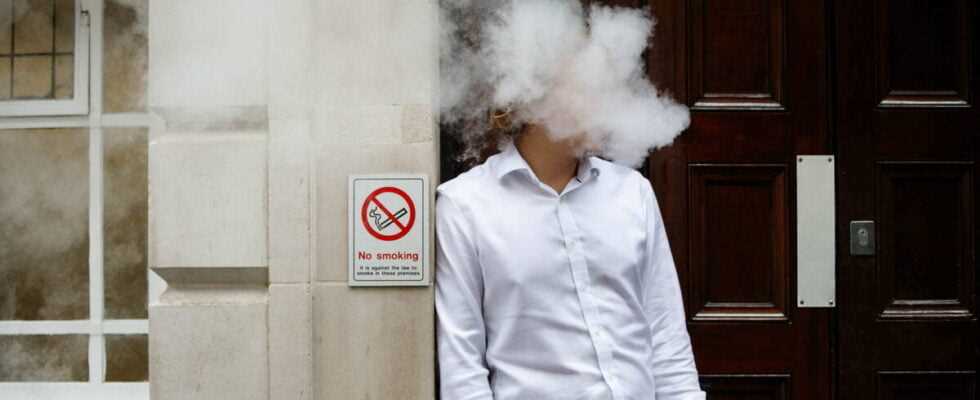What could be better than a new unfavorable opinion of the health authorities around the electronic cigarette to continue to cast doubt on this device prized by nearly 4 million French people. In an opinion published Tuesday, January 4, the High Council of Public Health (HSCP) indicated that the electronic cigarette should not be offered as a tool for smoking cessation by health professionals, for lack of perspective on its benefits and risks .
“Health professionals who support a smoker in a process of smoking cessation must use drug treatments or not that have proven their effectiveness”, like nicotine patches or gums, judges this advisory body. According to the HSCP, “There is insufficient evidence-based knowledge to suggest [les cigarettes électroniques] as aids to smoking cessation in the management of smokers by health professionals ”. In 2016, the organization estimated the opposite, considering that vaping could be considered “As an aid to stop or reduce tobacco consumption”.
Since the emergence of the electronic cigarette in France, the practice has divided the medical community. In July, the WHO had once again indicated that vapers could be “dangerousAnd should be regulated. William Lowenstein, addictologist responds to Release and denounces an attack on risk reduction. The president of SOS addiction continues to defend vaping.
How do you explain the reluctance of the French authorities around vaping?
We face the same eternal reluctance. Whether around the legalization of cannabis or the electronic cigarette. It reminds me of the debates around methadone. People turn their heads when the solutions don’t seem perfect to them and go so far as to invent dangerous things. In our country, academicism and reluctance are mixed, which prevents us from advancing major public health issues such as alcohol and tobacco. This opinion is the illustration of a desire to wage a clean war, without the slightest risk, as the situation worsens. The policy of radical withdrawal is the tyranny of the ideal and this strategy obtains only weak results. You have to be responsible. The precautionary principle exists around vaping, but it is exceeded by the need to avoid 75,000 deaths per year. It should be remembered that it is combustion that kills one in two smokers, not tobacco or nicotine. With vaping, combustion and carbon monoxide leading to cardiovascular problems, lung, bladder and throat cancer, it’s over. But this device also suffers from a lot of fake news.
Which public health model for tobacco do you think we should adopt?
In England, vaping is at the heart of smoking cessation aid. It cannot be said that the Royal College of Physicians was irresponsible when it said five years ago that vaping is 95% less risky compared to smoking. Electronic cigarettes are an integral part of public health methods, with advertising on bus stops, in the street and prevention messages. This is Anglo-Saxon pragmatism. It is the acceptance of risk reduction and not simply the French vision of “all or nothing”. On these issues, they are ahead. As early as 1970 they introduced methadone for heroin users when we in France had to wait until 1994, after the Swiss and the Germans got started. Rather than providing information around this tool, saying that you have to be followed by a doctor, we prefer to take it down.
How will you continue to recommend electronic cigarettes to your patients?
It is a pleasure to see people say that they will no longer smoke while holding an electronic cigarette in their hand. In addition to the effectiveness of weaning, they are happy with their way out of smoking. As with alcohol and opiates, smoking is known to activate the memory of pleasure. Even after stopping these substances for three or four years, one can relapse. They create a memory imprint which means that the desire to consume can be relaunched at any time. Time is never the ally that we would hope to get rid of tobacco, unlike cannabis and cocaine, drugs for which the memory required is different. People who vape don’t even think about smoking anymore. It has been forty years since the majority of smokers who wish to quit smoking have not been able to do so by conventional means. For three years, vaping has been the main way out of smoking and has allowed more than 2 million people to completely quit smoking. It’s not nothing.
